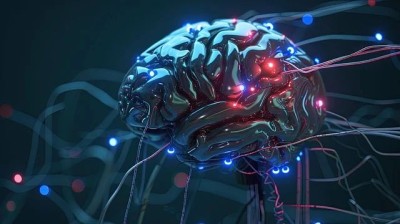The Rise of Automation: What It Means for Work and Life
-1745570758.jpg)
We are living in a time of rapid technological change, and at the heart of it lies automation—the use of technology to perform tasks with minimal human intervention. From self-checkout kiosks to smart factories and AI-powered virtual assistants, automation is no longer a concept of the future; it’s the reality shaping our present and redefining the way we work and live.
But what exactly does the rise of automation mean for society? Is it a threat to jobs or a tool for progress? Let’s dive into how automation is transforming industries, work culture, and everyday life—and what it means for you.
1. What Is Automation?
Automation involves using machines, software, or systems to complete tasks without direct human involvement. It can be divided into three main categories:
- Industrial automation: Machinery used in manufacturing and production lines
- IT and software automation: Algorithms, bots, and scripts that handle repetitive digital tasks
- Artificial intelligence (AI) and robotics: Smart automation that learns, adapts, and improves over time
💡 Fact: According to a 2023 McKinsey report, automation could raise global productivity growth by 0.8 to 1.4% annually.
2. A Historical Shift: From Industrial to Intelligent Automation
Automation is not new. It began with the Industrial Revolution when machines replaced manual labor. Over time, we’ve seen the evolution from mechanical automation (e.g., textile looms) to digital automation (e.g., spreadsheets), and now to intelligent automation powered by AI, machine learning, and robotics.
Today, machines can analyze data, make decisions, and even interact with humans—ushering in the Fourth Industrial Revolution.
3. Impact on the Workplace: Jobs Lost, Jobs Gained
One of the biggest concerns around automation is job displacement. And it’s a valid one.
🔍 Fact: The World Economic Forum estimates that 85 million jobs could be displaced by automation by 2025. However, it also predicts 97 million new roles may emerge that are more suited to the new division of labor between humans and machines.
✅ Jobs Most Likely to Be Automated:
- Data entry clerks
- Manufacturing line workers
- Cashiers and bank tellers
- Telemarketers
- Routine administrative roles
💼 Jobs Likely to Grow:
- AI and machine learning specialists
- Software developers
- Data analysts
- Healthcare workers
- Cybersecurity experts
- Human interaction-intensive roles (teachers, therapists, etc.)
Rather than eliminating work, automation is reshaping it. Workers need to adapt and upskill to stay relevant in a digital economy.
4. Upskilling: The New Professional Lifeline
As machines take over repetitive tasks, the demand is growing for workers who can manage, program, and collaborate with these machines. This makes upskilling—learning new skills to perform new or evolving roles—more crucial than ever.
👨🏫 Fact: A LinkedIn survey found that 59% of learning and development professionals identified upskilling and reskilling as their top priority in 2024.
Important future-ready skills include:
- Digital literacy
- Critical thinking
- Creativity
- Emotional intelligence
- Data literacy
- Project management
Governments and companies are investing in retraining programs to ensure people don’t get left behind in the age of automation.
5. How Automation Improves Life Beyond Work
Automation isn’t just about work—it’s about making life easier, safer, and more efficient.
In the Home:
- Smart devices (like Alexa or Google Home) automate reminders, shopping lists, and lighting
- Robotic vacuum cleaners automate cleaning chores
- Smart thermostats save energy by learning your heating preferences
In Healthcare:
- AI diagnostics can detect diseases like cancer earlier than humans
- Telemedicine automates appointment scheduling and follow-ups
- Wearables like smartwatches monitor health metrics in real-time
In Daily Services:
- Self-driving cars (still under development) aim to make travel safer
- Chatbots offer 24/7 customer service
- Online banking automates payments and fraud detection
📈 Fact: A Deloitte study showed that automation has improved productivity and customer satisfaction by up to 30% in businesses that implemented it effectively.
6. Challenges and Ethical Questions
While automation offers many benefits, it also raises important social and ethical concerns:
⚠️ Key Concerns:
- Job displacement: Particularly for low-skilled workers
- Widening income inequality: High-tech workers thrive while others fall behind
- Data privacy: AI systems rely on massive data—sometimes at the cost of privacy
- Bias in automation: Algorithms can reinforce human biases if not carefully monitored
Ethical AI development and government regulation are essential to ensure automation benefits everyone—not just the few.
7. Automation in Developing Countries
For developing nations, automation presents a double-edged sword. On one hand, it offers opportunities for rapid industrial growth and service efficiency. On the other, it could lead to significant job losses in labor-intensive industries like agriculture, textiles, or call centers.
🌍 Fact: A World Bank report warns that up to 66% of jobs in some developing economies could be at risk due to automation.
To strike a balance, developing countries must prioritize digital education, invest in local tech industries, and support small businesses in embracing automation at a manageable pace.
8. How to Adapt and Thrive in the Age of Automation
The good news? We are not powerless in the face of automation. Whether you're a student, a worker, or a business owner, there are steps you can take:
👣 Steps to Future-Proof Yourself:
- Embrace lifelong learning – Stay curious and keep learning new digital tools.
- Develop soft skills – Machines can’t replace human creativity, empathy, or leadership.
- Use automation tools – Streamline your own work using productivity apps and AI.
- Stay informed – Understand how automation is evolving in your industry.
Final Thoughts: Partnering with the Machines
Automation is not the enemy. It’s a powerful tool—one that can free us from mundane tasks and unlock new creative and professional potential. But it requires preparation, awareness, and inclusive policies to ensure its benefits are shared broadly.
As we navigate this new world, the key is not to resist change—but to embrace it wisely. With the right mindset and skills, we can all thrive in the age of automation.
-1745570755.jpg)
Smart Living: Embracing Technology for a Better Tomorrow
-1745570753.jpg)
Connected World: The Role of Tech in Modern Living

The Ethical Dilemmas of AI and Machine Learning

Using Social Media the Right Way: Tips for Kids and Teens





-1745569762.jpg)
-1745569762.jpg)
-1745569769.jpg)
-1745569771.jpg)